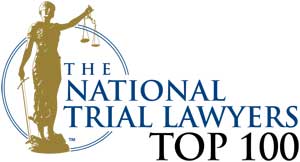Don't Leave Your Legacy to Chance: A Guide to Estate Planning Basics
Why Estate Planning Matters in Limestone County Alabama:
 Family conflict after a loved one’s passing is a common and heartbreaking scenario. Often, the root cause is the lack of an estate plan. Shockingly, a 2021 Gallup poll, revealed only 46% of US adults have a Will. This means over half have no plan for their assets! Estate planning in 35611 in Athens ensures your wishes are known when you can’t speak for yourself due to illness or death. It prevents confusion, minimizes legal fees, and protects your loved ones.
Family conflict after a loved one’s passing is a common and heartbreaking scenario. Often, the root cause is the lack of an estate plan. Shockingly, a 2021 Gallup poll, revealed only 46% of US adults have a Will. This means over half have no plan for their assets! Estate planning in 35611 in Athens ensures your wishes are known when you can’t speak for yourself due to illness or death. It prevents confusion, minimizes legal fees, and protects your loved ones.
Understanding these terms empowers you to make informed decisions:
- Advance Directives: Legal documents outlining your medical treatment preferences when incapacitated.
- Beneficiary: The person(s) inheriting your assets (money, property).
- Contingent Beneficiary: Receives your assets if the primary beneficiary predeceases you.
- Estate: Everything you own, including debts.
- Estate Plan: A collection of legal documents outlining your wishes for asset distribution.
- Estate Planning: The process of planning for your assets’ future distribution.
- Intestate: Dying without a Will, leaving the state to decide asset distribution.
- Living Will: An Advance Directive specifying medical treatment preferences.
- Power of Attorney: A document authorizing someone to act on your behalf in legal and financial matters.
- Probate: Court-supervised process of transferring assets to beneficiaries.
- Trust: A legal arrangement where a third party manages assets for beneficiaries.
- Will: A legal document outlining your wishes for asset distribution after death.
Estate Planning: Secure Your Legacy and Avoid Probate
Have you ever heard the phrase “get your affairs in order”? Estate planning in Limestone County is the key to doing just that. It ensures your wishes are known and respected when you can’t speak for yourself, minimizing stress and confusion for your loved ones.
What is Estate Planning?
Estate planning involves creating legal documents that outline your wishes for:
- Financial Management: How your assets are handled after your death.
- Property Distribution: Who inherits your belongings, real estate, and other valuables.
- Healthcare Decisions: Specifying your preferences for medical treatment in case of incapacity.
- Power of Attorney: Appointing someone you trust to make decisions on your behalf if needed.
- Funeral Arrangements: Detailing your preferences for your final wishes.
- Guardianship of Dependents: Choosing guardians for minor or disabled children.
- Legal Documents Location: Ensuring your loved ones know where to find important documents.
Avoiding Probate: Transferring Assets Efficiently
Estate planning isn’t just about wills. Many assets can bypass probate, a court-supervised process that can be time-consuming and expensive.
Probate Assets vs. Non-Probate Assets:
- Probate Assets: These include property solely owned by you, anything transferred through a will, and life insurance payable to your estate. These assets go through probate.
- Non-Probate Assets: These avoid probate and transfer directly to beneficiaries.
Examples include:
- Joint accounts with right of survivorship
- Life insurance with named beneficiaries
- Retirement accounts with designated beneficiaries
- Property titled in “Transfer on Death” (TOD) format
Optimizing Your Estate Plan
Consulting a lawyer or financial advisor can help you maximize your use of non-probate assets, minimizing probate costs and delays. Explore strategies to efficiently transfer your property and ensure a smooth transition for your heirs.
Transferring Your Estate: Wills, Trusts, and Powers of Attorney
Ensuring a smooth transition of your assets is crucial. Understanding the key legal documents—Wills, Trusts, and Powers of Attorney—is essential for effective estate planning.
Financial Powers of Attorney:
The Financial Power of Attorney empowers a trusted individual to manage your finances if you become incapacitated. There are two types:
- Springing Power of Attorney: Takes effect only upon your incapacity.
- Durable Power of Attorney: Remains valid even if you become incapacitated.


Wills:
A Will is a legal document outlining how you want your property distributed after your death. It also names an Executor to oversee the process and can specify funeral arrangements and guardianship for minors.
Key Points about Wills:
- Can be revoked or amended during your lifetime.
- Must adhere to state laws (e.g., age, mental capacity, witnesses).
- Can be handwritten but must meet all requirements.
- Should be updated after significant life events.
- Becomes a public document after probate.
Trusts:
A Trust is a legal arrangement where you transfer assets to a trustee to manage for beneficiaries. Unlike Wills, Trusts can take effect during your lifetime.
Conclusion:
By understanding these legal documents, you can effectively plan for the transfer of your assets, ensuring your wishes are carried out and your loved ones are protected. Consult with an attorney to create a personalized estate plan tailored to your specific needs.
Your Voice Matters: The Importance of Advance Directives
Have you considered what would happen if you were unable to communicate your medical wishes? Advance directives are crucial legal documents that ensure your voice is heard even when you can’t speak for yourself.
What are Advance Directives?
Advance directives are legal documents that outline your preferences regarding life-sustaining treatment and other medical care. They help guide your healthcare providers in making decisions when you’re unable to do so.
Common Types of Advance Directives:
- Living Will: Specifies your wishes regarding life-sustaining treatments.
- Healthcare Power of Attorney: Designates someone to make healthcare decisions on your behalf.
- Advance Healthcare Directive: Combines a Living Will and Healthcare Power of Attorney.
- Psychiatric Advance Directives: Outlines preferences for mental health treatment.
- Do-Not-Resuscitate (DNR) Order: Indicates your desire not to receive CPR.
- Organ Donation Instructions: Specifies your wishes regarding organ donation.
- Physician’s Orders for Life-Sustaining Treatment (POLST): Provides medical orders for end-of-life care.
The Power of Advance Directives:
Advance directives prevent family conflicts and ensure your loved ones aren’t burdened with difficult decisions. They give you control over your healthcare choices, even when you’re unable to communicate.
Key Considerations:
- Choose a Trusted Agent: Carefully select someone you trust to make decisions on your behalf.
- Review Regularly: Update your directives as your circumstances or preferences change.
- Consult with a Professional: Seek legal advice to ensure your documents are legally valid and reflect your wishes accurately.
Conclusion:
Don’t leave your healthcare decisions to chance. By creating advance directives, you can ensure your voice is heard and your wishes are respected, even in the most challenging circumstances.
References
- Hayes, Adam. 2023. “Power of Attorney (POA): Meaning, Types, and How and Why to Set One Up.” Investopedia. https://www.investopedia.com/terms/p/powerofattorney.asp.
- Consumer Financial Protection Bureau. 2023. “What is a power of attorney (POA).” https://www.consumerfinance.gov/ask-cfpb/what-is-a-power-of-attorney-poa-en-1149/
- UNC Health. “Advance Care Planning.” https://www.unchealth.org/records-insurance/advance-care-planning
- House, Steven A., Caroline Schoo, and Wes A. Ogilvie. 2023. “Advance Directives.” StatPearls. https://www.ncbi.nlm.nih.gov/books/NBK459133/
- Legal Services Alabama. 2023. “Powers of Attorney.” https://www.alabamalegalhelp.org/resource/powers-of-attorney
Here are some of the main cities in Limestone County, Alabama:
- Athens: The county seat and the largest city in Limestone County. It’s known for its historic downtown, festivals, and proximity to Huntsville.
- Ardmore: A charming town with a population of around 1,200. It’s home to the Saturn IB rocket at the Alabama Welcome Center.
- Elkmont: A small town with a historic downtown and a population of around 4,000.
- Lester: A small community with a population of around 1,000.
- Belle Mina: A small town with a population of around 1,000.
- Mooresville: A small town with a population of around 1,000.

